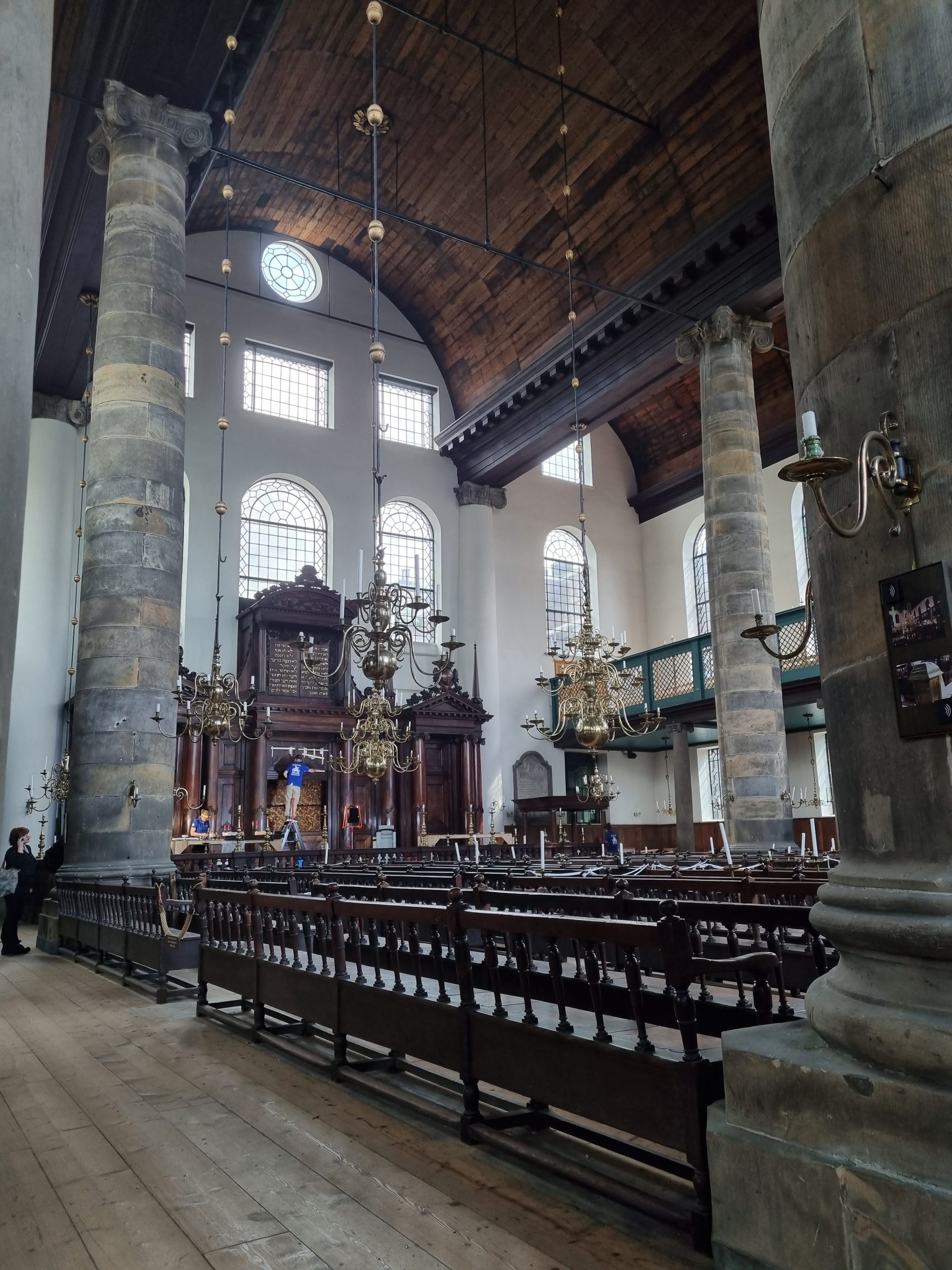The Esther Project
Bringing Esther back to Amsterdam
The oratorio Esther (‘The Salvation of Israel by Ester’) is an oratorio written by the Viennese composer Lidarti for the Portuguese Jewish community in Amsterdam, in the 18th century.
The project goal is to bring the piece back to its origin city and to modern audiences.
Background
In November 1997, a librarian found an intriguing manuscript in an extensive collection of secondhand music, received by the Cambridge library in England. The text was written in roman letters in an unknown language. This discovery led to contacting prof. Israel Adler, from the Hebrew University of Jerusalem, researched early Jewish music extensively before. Adler was looking for the music notes of this piece since he learned about its existence. He went to Cambridge to observe the manuscript and, in a few years, made a modern edition of the oratorio.
This oratorio was ‘The Salvation of Israel by Ester,’ dating to around 1774, and the largest piece existing in Hebrew from this period. It has significant meaning for understanding the life of the Jewish community in Amsterdam. It suggests an influence and awareness of the secular world around the community and high musical skills within the community that was able to perform such work. It is known that the community did produce their Hebrew version of Handel’s Esther and that from this libretto, Lidarti created his oratorio.
Lidarti
Christian Joseph Lidarti was an Austrian (Christian) composer of Italian descent, born in Vienna in 1730. Many pieces composed by him were preserved in the Ets-Haim library in Amsterdam and were part of the Sephardic synagogue musical life. Lidarti’s works left a profound imprint on the community’s musical repertoire, which has lasted down to present times.
The Oratorio
The musical style of Lidarti’s is in the early classical style of the eighteenth century, and Esther is scored for a three-part mixed choir and a chamber orchestra. It has five solo vocal roles. The libretto was written by Rabbi Jacob Raphael Saraval (1707-1782) based on the book for Handel’s oratorio Esther, on a known Jewish story, told every year in the holiday of Purim.
Performances
Production of the piece was premiered and recorded in Israel in 2000, 250 years after its estimated original performance. It was a full production of the Jerusalem Baroque Orchestra.
Since then, it was performed a few times, but the whole piece was never performed in the Netherlands.
The project goal is to bring the piece back to its origin city and create a historically informed performance of the oratorio in Amsterdam.
Follow the project on Instagram under the hashtag: #bringingestherbacktoamsterdam




